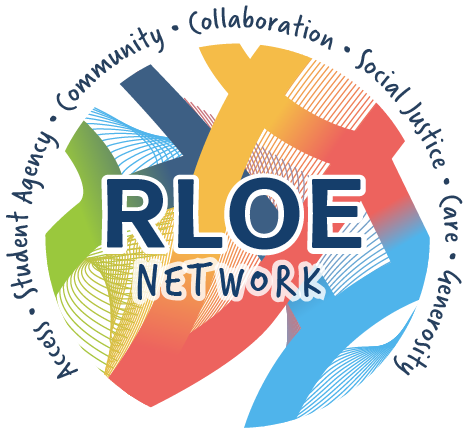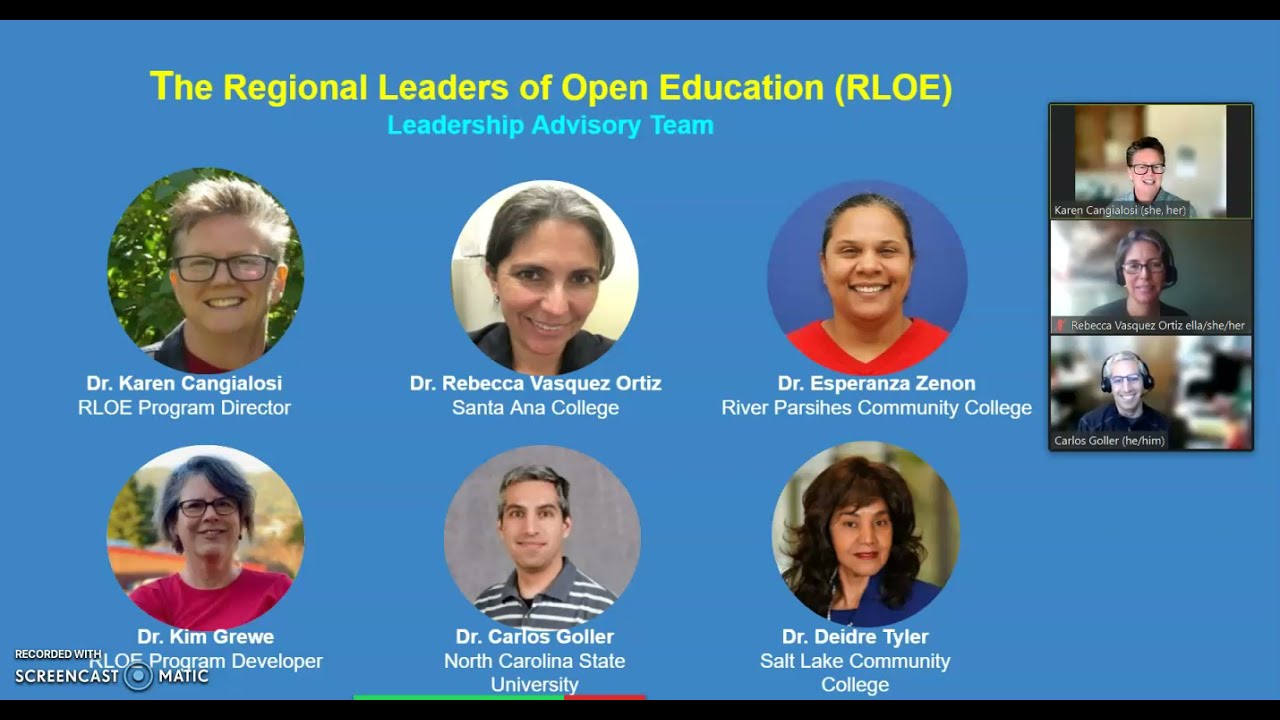Karen Cangialosi (OE Global|CCCOER), Rebecca Vasquez Ortiz (Santa Ana College), Carlos Goller (North Carolina State University)
The creation, development and integration of OER is currently uneven and variably distributed across the large number of higher education institutions globally. Connecting key stakeholders of open education initiatives (such as academic, community and government leaders, funding foundations/organizations, librarians, instructional designers, teachers, students, digital learning administrators, informational technologists, etc.) via robust and highly connected human networks is essential to the long-term sustainability of OER. The OE Global-CCCOER Regional Leaders of Open Education (RLOE) network serves as a model for the ways that networking can strongly support the creation and ongoing implementation of open education initiatives through building the leadership and relationships that are necessary for the long-term sustainability of OER.
RLOE brings together leaders from across North American institutional and regional boundaries that share ideas and resources and collaborate on building strategic plans for open education. Especially key to the sustainability of OER and open educational practices (OEP), RLOE builds strong partnerships with and continues to recruit leaders from state agencies, community organizations, and funding foundations. The RLOE network especially invests in supporting leadership that promotes anti-racism and social justice and highlights four main cornerstones: A) Policies, B) Professional Development Strategies, C) Stewardship Plans and D) Sustainability. Phase 2 of the RLOE network integrates these structural cornerstones as driving questions for systemic change in education into three main areas of focus for RLOE programming (Adoption of OER, Adaptation and Creation of OER, Open Educational Practices) shaped by these open education values: 1. Access and Equity; 2. Student Agency and the Rights of Learners; 3. Community and Collaboration; 4. Care and Generosity; 5. Social Justice, Diversity, Inclusion. Supporting network growth, developing tighter connections among smaller networks and empowering underrepresented voices to be leaders are among the recommendations that emerge from our work with the RLOE network.
Extended abstract: OE_Global_2021_paper_130.pdf 📄
Presentation Details
UNESCO OER Action Area: Sustainable OER
Format: Pre-recorded Presentation
Language: English
Participate
Pre-recorded presentations will be added below by the author(s). Watch them anytime during the conference.
Join or start the conversations with the author(s) by replying below with questions or comments, paying particular attention to the relationship to the OER Recommendation Action Areas. Please also share related resources.

